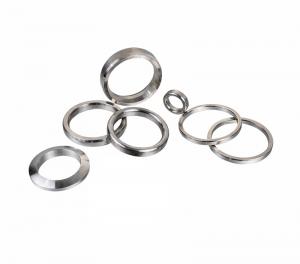-
 Encontrar enMiembros
Encontrar enMiembros Encontrar enVideos
Encontrar enVideos Encontrar enCanales
Encontrar enCanales
This website uses cookies to ensure you get the best experience on our website.
To learn more about our privacy policy haga clic aquíPreferencia de privacidad
- Etiquetas - #Ring Joint Gaskets Manufacturer,Non-Asbestos Gaskets Factory
-
- Última actualización 16 de agosto de 2021 0 comentarios, 224 vistas, 0 likes
More from xinjia shaoxing
More in Politics
Related Blogs
Archivo
Ring Joint Gaskets are designed to have a limited amount of positive interference
Cuerpo
Ring Joint Gaskets are designed to have a limited amount of positive interference to ensure that the ring joint is properly seated in the groove when compressed. It is not recommended to reuse them for two reasons:
The initial position of the gasket will be affected
When the gasket is plastically deformed, the outer surface of the metal will undergo work hardening. This may cause permanent damage to the groove.
Is it safe to reuse Ring Joint Gaskets only for hydrostatic test purposes?
Some manufacturers believe that it is safe to reuse Ring Joint Gaskets for hydrostatic testing. However, this is not the case. When the flange assembly is compressed, the gasket undergoes plastic deformation and strain hardening. It is important that the ring joint is significantly softer than the flange groove so that the gasket plastically deforms instead of the groove. The use of a harder ring joint will cause damage to the flange groove.
Therefore, the gaskets are made of a softer material than the flange mating surface because they are expected to deform and flow into and fill any gaps and undulations in the flange but still provide sufficient strength to resist the pressure contained therein. The material used to make Ring Joint Gaskets is very important. The material should have sufficient strength to withstand internal pressure. It must also be able to withstand the operating temperature and withstand the working fluid that it will come into contact with.
Non-Asbestos Gaskets Factory is also our product, welcome to consult and purchase.










Comentarios